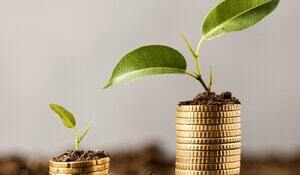Energy Sobriety Plan: in the face of the crisis, levers for long-term action
It's official, on October 6 the government presented its sobriety plan to tackle the energy crisis. But what can we expect? This plan to reduce energy consumption by 10% is an absolute necessity to avoid spending a winter under the sign of rationing.

Consequences of dependence on fossil fuels
There's no denying it, the current crisis could have been avoided and anticipated, but the Ukrainian conflict has accentuated the urgency of France's energy transition.
In fact, since the start of the war in Ukraine, supplies have been at a low, while economic activity remains buoyant. What's more, after peak oil production is reached in 2019, the unavailability of Russian gas is just one stage in a much longer obstacle course: experts agree that available deposits will decline by 10% per decade. This means that the rate of 100 million barrels extracted per day will fall to a maximum of 50 million by 2050. From 2022 onwards, demand must adapt to supply, not the other way around.
Thus, meeting energy-saving targets necessarily involves decarbonization and the substitution of fossil fuels with low-carbon electricity.
What are the risks for manufacturers?
Some companies in various industrial sectors have not waited for the crisis to include actions to reduce their energy consumption in their master investment plans.
It seems difficult to reach the 10% target without any particular constraints, when comparatively speaking, the drop in activity under covid constraints has only produced a 17% reduction.
The concern of players in the food industry sector about maintaining their production is growing, as confirmed by a press release from the Association Nationale des Industries Alimentaires (ANIA). With energy prices soaring, pressure from supermarkets and a sobriety plan to stick to, many companies are in trouble.
.Act, reduce and project
Faced with the threat of soaring prices and electricity and gas rationing on the one hand, and the climate threat on the other, urgent action is needed to:
- Reduce energy consumption without delay through concrete levers.
- Recover energy sovereignty by improving energy performance and turning to self-generation of renewable energy.
In the meantime, the state is setting up aid for companies whose gas and electricity expenditure exceeds 3% of their sales and who suffer a doubling of gas and/or electricity prices compared with 2021. Applications for the periods from March to August can be submitted until December 2022.


